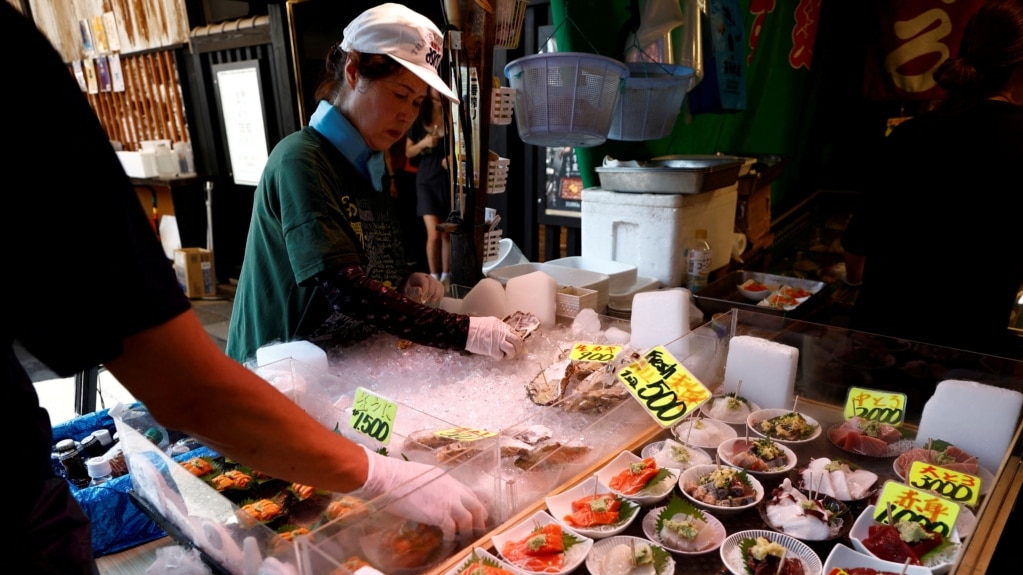China and Japan have reached an agreement over the release of wastewater from Japan’s destroyed Fukushima nuclear power center. The deal prepares the way for China to restart Japanese seafood shipments it banned because of concerns over the wastewater.
Representatives from both countries announced on September 20 a deal had been reached. Japanese Prime Minister Fumio Kishida said the agreement had established a level of “mutual understanding” on the issue.
China’s government began banning sales of seafood coming from Japan more than a year ago. Officials said they were concerned the wastewater – which was treated to remove radioactive material – might poison seafood products sold in China.
Japan has repeatedly said its testing and monitoring efforts have shown the treated wastewater presents no risk of radioactive poisoning to humans.
Operators of the Fukushima center announced in June 2023 that they had begun testing the process of releasing treated wastewater into the sea. The water first passes through equipment designed to remove harmful materials. Japan’s government says the processed water is considered “treated,” not “radioactive.”
But experts say it is impossible to remove all radioactive material from the wastewater. Government officials have said tritium – a radioactive form of hydrogen – is the only substance that cannot be removed from the water. However, they say the material is not considered harmful in small amounts.
The water release program began in August 2023. Officials said it was a necessary part of cleanup efforts at the Fukushima center. Three reactors there suffered meltdowns after a 2011 earthquake and huge ocean waves destroyed the plant’s cooling systems. The disaster forced 160,000 people to flee surrounding areas that were affected by radioactive material.
The agreement itself does not immediately remove China’s ban on Japanese seafood imports. Kishida told reporters Chinese negotiators said the deal begins the process for China to “revisit its import restrictions” on the seafood products.
The agreement calls for Japan to establish a long-term program in which international experts will carry out independent testing and monitoring. Kishida told reporters the government agreed to additional monitoring methods on the treated wastewater.
A Chinese foreign ministry official said his country still has concerns about the safety of Japanese seafood products. Chinese and Japanese experts are expected to come together in the coming months to work on China’s safety concerns. The official noted the ban will likely be lifted on products over time.
Before the ban, China was Japan’s biggest market for seafood exports. In the first half of 2024, Japanese exports of agriculture, forest and fish products fell for the first time since 2020. The decrease is blamed partly on China’s seafood ban.
The International Atomic Energy Agency (IAEA) has worked with Japan on its monitoring efforts involving the released wastewater. The head of the organization, Director General Rafael Grossi, welcomed the latest agreement between China and Japan.
Grossi praised Japan’s government "for its continued engagement with the IAEA.” He also thanked the Chinese side for taking part in “constructive” negotiations with IAEA officials leading up to completion of the deal.
I’m Bryan Lynn.

